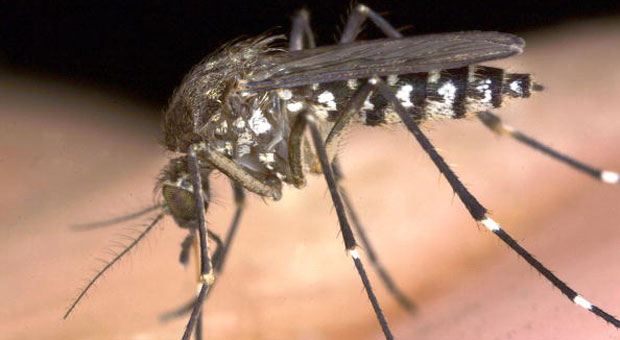Malaria deaths halved but progress threatened by Ebola
'Tremendous achievements' could be reversed in West Africa as Ebola outbreak continues, warns WHO

A free daily email with the biggest news stories of the day – and the best features from TheWeek.com
You are now subscribed
Your newsletter sign-up was successful
Global malaria deaths have decreased dramatically, but the World Health Organization (WHO) warns that progress could be reversed by the effects of the Ebola virus.
Since 2000, the number of people dying from malaria has almost halved, with 13 of the 97 malarial countries reporting no cases of the disease last year. This was made possible by the widespread distribution of insecticide treated nets and significant improvements in diagnostic testing and treatment.
"These tremendous achievements are the result of improved tools, increased political commitment, the burgeoning of regional initiatives, and a major increase in international and domestic financing," WHO Director-General Margaret Chan told the BBC.
The Week
Escape your echo chamber. Get the facts behind the news, plus analysis from multiple perspectives.

Sign up for The Week's Free Newsletters
From our morning news briefing to a weekly Good News Newsletter, get the best of The Week delivered directly to your inbox.
From our morning news briefing to a weekly Good News Newsletter, get the best of The Week delivered directly to your inbox.
Because of such efforts, 4.3 million deaths were prevented – 3.9 million of those were children under the age of five in Sub Saharan Africa. Globally, malaria was responsible for the deaths of 584,000 people in 2013.
"The next few years are going to be critical in showing that we can maintain momentum and build on the gains," Pedro Alonso, director of the WHO's global malaria programme told Al Jazeera.
However, the spread of the deadly Ebola virus has had a "devastating impact" on the battle against malaria in West Africa, as the ongoing Ebola outbreak places increased pressure on already crumbling health care systems.
In Guinea, Sierra Leone and Liberia, the countries worst affected by the outbreak, many of the inpatient clinics are closed and patients exhibiting a fever – a symptom of both malaria and Ebola – are often afraid of coming forward.
A free daily email with the biggest news stories of the day – and the best features from TheWeek.com
Although global funding for malaria prevention and treatment has tripled during the last eight years, reaching £21.7 billion last year, analysts warn it still falls short of the estimated £3.2 billion needed for containment and eradication, The Guardian reports.
Chan is still optimistic the war against malaria can be won. "We have the right tools and our defences are working," she said. "But we still need to get those tools to a lot more people if we are to make these gains sustainable."
-
 What to know before filing your own taxes for the first time
What to know before filing your own taxes for the first timethe explainer Tackle this financial milestone with confidence
-
 The biggest box office flops of the 21st century
The biggest box office flops of the 21st centuryin depth Unnecessary remakes and turgid, expensive CGI-fests highlight this list of these most notorious box-office losers
-
 What are the best investments for beginners?
What are the best investments for beginners?The Explainer Stocks and ETFs and bonds, oh my
-
 Epstein files topple law CEO, roil UK government
Epstein files topple law CEO, roil UK governmentSpeed Read Peter Mandelson, Britain’s former ambassador to the US, is caught up in the scandal
-
 Iran and US prepare to meet after skirmishes
Iran and US prepare to meet after skirmishesSpeed Read The incident comes amid heightened tensions in the Middle East
-
 Israel retrieves final hostage’s body from Gaza
Israel retrieves final hostage’s body from GazaSpeed Read The 24-year-old police officer was killed during the initial Hamas attack
-
 China’s Xi targets top general in growing purge
China’s Xi targets top general in growing purgeSpeed Read Zhang Youxia is being investigated over ‘grave violations’ of the law
-
 Panama and Canada are negotiating over a crucial copper mine
Panama and Canada are negotiating over a crucial copper mineIn the Spotlight Panama is set to make a final decision on the mine this summer
-
 Why Greenland’s natural resources are nearly impossible to mine
Why Greenland’s natural resources are nearly impossible to mineThe Explainer The country’s natural landscape makes the task extremely difficult
-
 Iran cuts internet as protests escalate
Iran cuts internet as protests escalateSpeed Reada Government buildings across the country have been set on fire
-
 US nabs ‘shadow’ tanker claimed by Russia
US nabs ‘shadow’ tanker claimed by RussiaSpeed Read The ship was one of two vessels seized by the US military